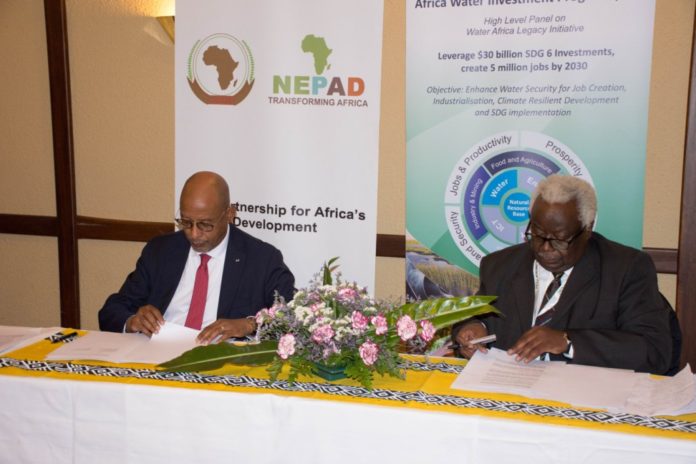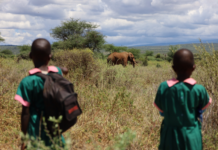By Nina Gabrielle Mich
Human activity makes enormous use of water in industry, agriculture and the domestic sector.
Despite abundant natural resources, Africa has more than 5,000 billion cubic meters of water in its groundwater, but roughly 300 million inhabitants still do not benefit from drinking water, this water shortage will contribute to the slowdown in economic growth in the next decades according to the World Health Organization (WHO).
“By 2020, the population of Africa will reach 1.6 billion. This translates into ten times the demand for water to support energy, agriculture, industries and other services.” said Dr. Kuiri F. Tjipangandjara, Chair of Global Water Partnership Southern Africa (GWPSA) during PIDA Week 2018 held in Zimbabwe.
The MOU signed between the NEPAD Agency and Global Water Partnership (GWP) is to accelerate the implementation of priority continental water infrastructure projects which is one of the four sectors covered by the Programme for Infrastructure Development in Africa (PIDA) and the Africa Investment Programme (AIP).
 “The collaboration will contribute to Africa’s transboundary water investments, development, and the NEPAD Agency mandate in particular through the implementation of the PIDA water transboundary projects. Transboundary Water project owners must engage our two institutions and facilitate the successful implementation of this MOU through their full engagement in the delivery of the regional integration agenda tasked on us all by the Africa Union and our member states” said the NEPAD Agency CEO, Dr. Ibrahim Mayaki during the signing ceremony.
“The collaboration will contribute to Africa’s transboundary water investments, development, and the NEPAD Agency mandate in particular through the implementation of the PIDA water transboundary projects. Transboundary Water project owners must engage our two institutions and facilitate the successful implementation of this MOU through their full engagement in the delivery of the regional integration agenda tasked on us all by the Africa Union and our member states” said the NEPAD Agency CEO, Dr. Ibrahim Mayaki during the signing ceremony.
According to the African Development Bank, by 2030, the African population will reach 1.6 billion. To meet the needs of the continent, Africa will need to produce at least 50% more food; and at least a tenfold increase in water needs for energy production to support the modernization of economies and social progress.
Rapid urbanization and industrialization will increase water demand, increase environmental degradation and pollution of water bodies. Urgent measures and leadership are required to address impacts of climate change on water availability, to scale up water investments, protect and better manage Africa’s freshwater resources and avert the growing risks and uncertainties to economic productivity and political stability.
“Through the Africa Water Investment Programme (AIP), GWP will mobilize its partners and foster innovative partnerships between the public and private sector to accelerate project preparation of water investments, ensure that these processes are sustainable through good water governance building on the foundation of integrated water resources management. Our joint partnership with NEPAD Agency will support analytical studies and interventions to accelerate the preparation of bankable transboundary PIDA water projects that will stimulate job creation, industrialization and achievement of SDGs”, said Dr. Kuiri F. Tjipangandjara, Chair of GWPSA and African Coordination unit.
The partnership between the two agencies will support project preparation, transaction management, resource mobilization, advocacy, capacity development, research and knowledge sharing in the joint implementation of transboundary water projects through a nexus approach.














